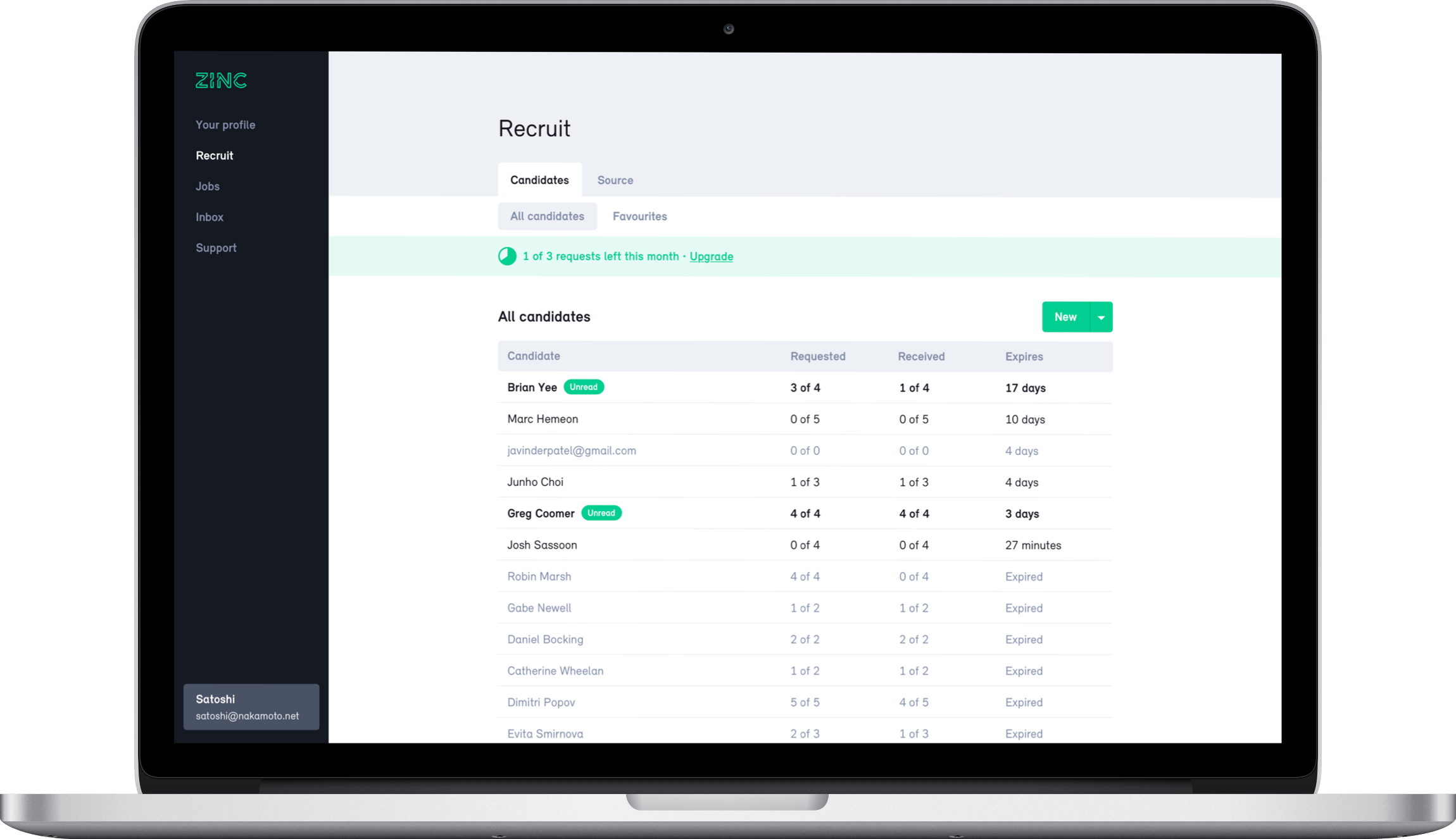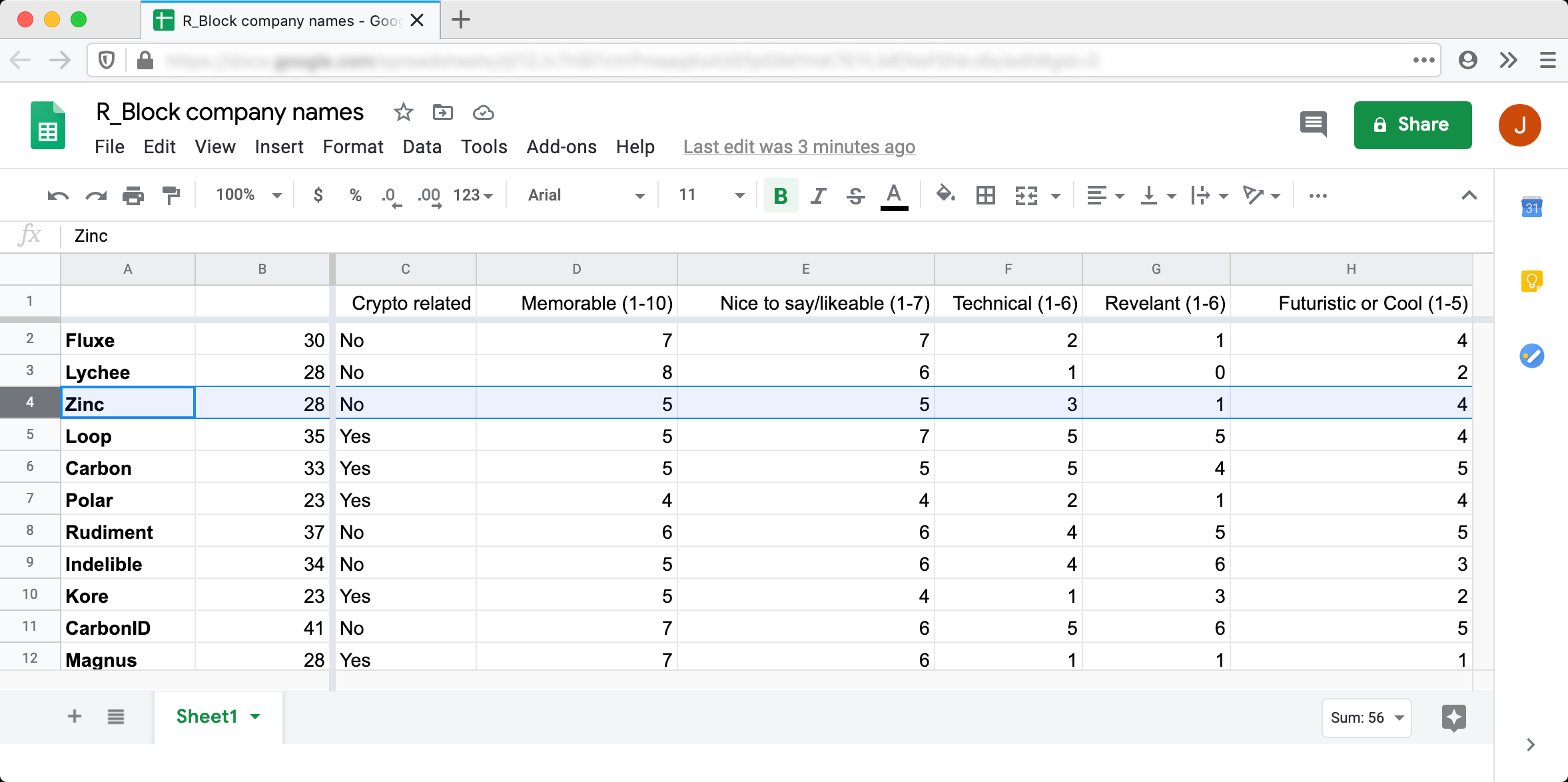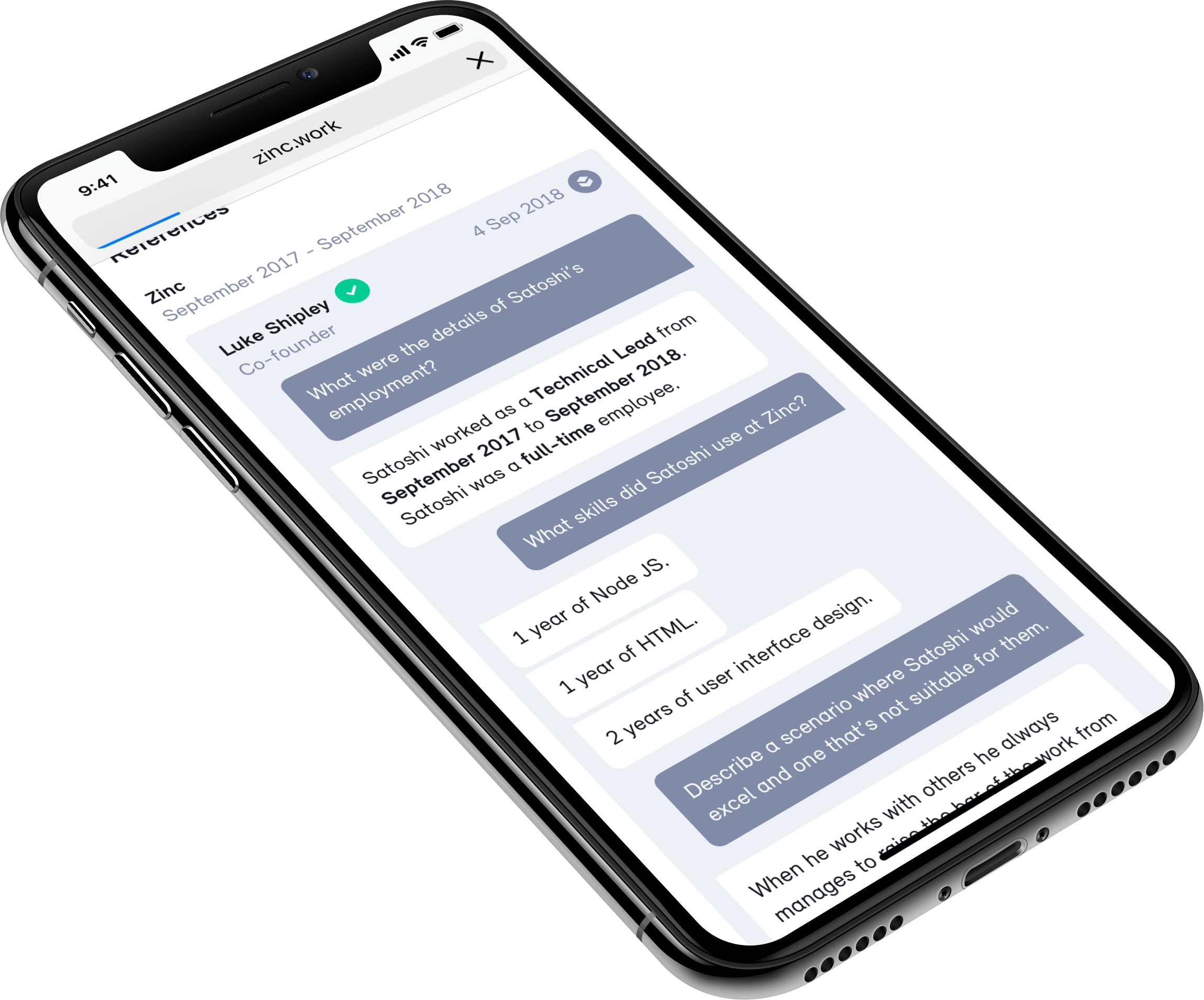Zinc
I was Lead Designer at Zinc, joining shortly after they raised $1.4M in one of the largest ICOs in the UK. I helped shape their whitepaper proof of concept into software that sets a new bar for recruiting. Zinc envisioned a world where recruitment software backed by blockchain made hiring more efficient and valuable to everyone.
Problem
References are time-consuming to collect, difficult to verify, and cannot easily be reused. This leads to a large amount of wasted time and effort which must be undertaken every time a candidate seeks a new role.
We believed that companies could utilise references to help understand and verify new employees, but because of the aforementioned issues, few companies wish to reference anymore.

Understanding the area
Recruiters reaching out to me for work opportunity was the only experience I had ever had in this sector. I didn’t know how they worked, the tools they used, or issues they faced. Although the founder had previously worked in recruiting, to gain first-hand experience of the sector I began researching many tools and also interviewed some prominent HR figures.
Research takeaways
- Recruiters have a large number of clients and very little time
- Recruiter work is primarily desktop-based
- Recruiment software rarely supports mobile devices which is important for candidates
Solutions
Efficiency is king
Recruiters are notoriously busy chasing candidates and making calls so we made sure collecting a reference was as simple as entering an email address for a candidate.
Worth your while
Referees are rewarded in cryptocurrency for their efforts in completing a reference.
Easily accessible
Candidates and recruiters can share their reference with a simple URL that works beautifully across desktop and mobile. No more PDFs or passworded documents.

Developing a brand
After a spate of fraudulent fundraising in the crypto-sphere I recommended Zinc rebrand before launching the product. After talking with the team we highlighted how important the brand would be for the company and product alike.
The original name under which the company raised funding was R_Block, which we deemed SEO unfriendly, forgetful, and too blockchain-related for a consumer market where the blockchain aspect should be subservient to the product.
After running a brand design sprint, we uncovered the three main tenets a new name should convey
- Trustworthy
- Futuristic
- Relevant to our cause

We brainstormed over 100 new names and after whittling them down to 3 candidates, pitched them to friends and colleagues of the company for feedback.
The results of the aforementioned feedback led to Zinc.

Visual inspiration
I took time to research currencies and history as inspiration for how a blockchain-based brand could look and feel and ended up drawing inspiration from 4 main sources: Cretian coins, electronic circuitry, Greek mythology, and science.
The primary building block of Zinc’s brand became the labyrinth, a unicursal path with 1 entrance and 1 exit symbolising the encryption technology Zinc was build upon. The primary accent colour is inspired by the colour of Zinc when it is burned, which emits a beautiful bluish-green flame.
For the small team to be able to work quickly we developed a Vue.js based component library for efficient development.
Conversational references
Unhappy with the status quo of LinkedIn profiles and PDF CVs to detail work experience we created a conversational interface that’s natural to read and seamless across devices. The conversational presentation provided easy consumption on mobile, was highly customisable, and remained consistent in presentation no matter the candidate recruiters or companies were reviewing.

Making blockchain accessible
Although passionate about the underlying technology of Zinc, blockchain is a difficult utility to start using for many people. Using a decentralised service requires users to store public and private keys and ensuring their security. If they lose the keys, their account is gone.
A developer and I took 24 hours to prototype a blockchain-based sign-in solution that was easier than OAuth. It utilised the capability of autofill in browsers and native cloud credential storage to persist keys across devices.
Outcomes
Zinc is now a highly used tool within recruiting of notable companies such as HelloFresh, Thriva and AND Digital.